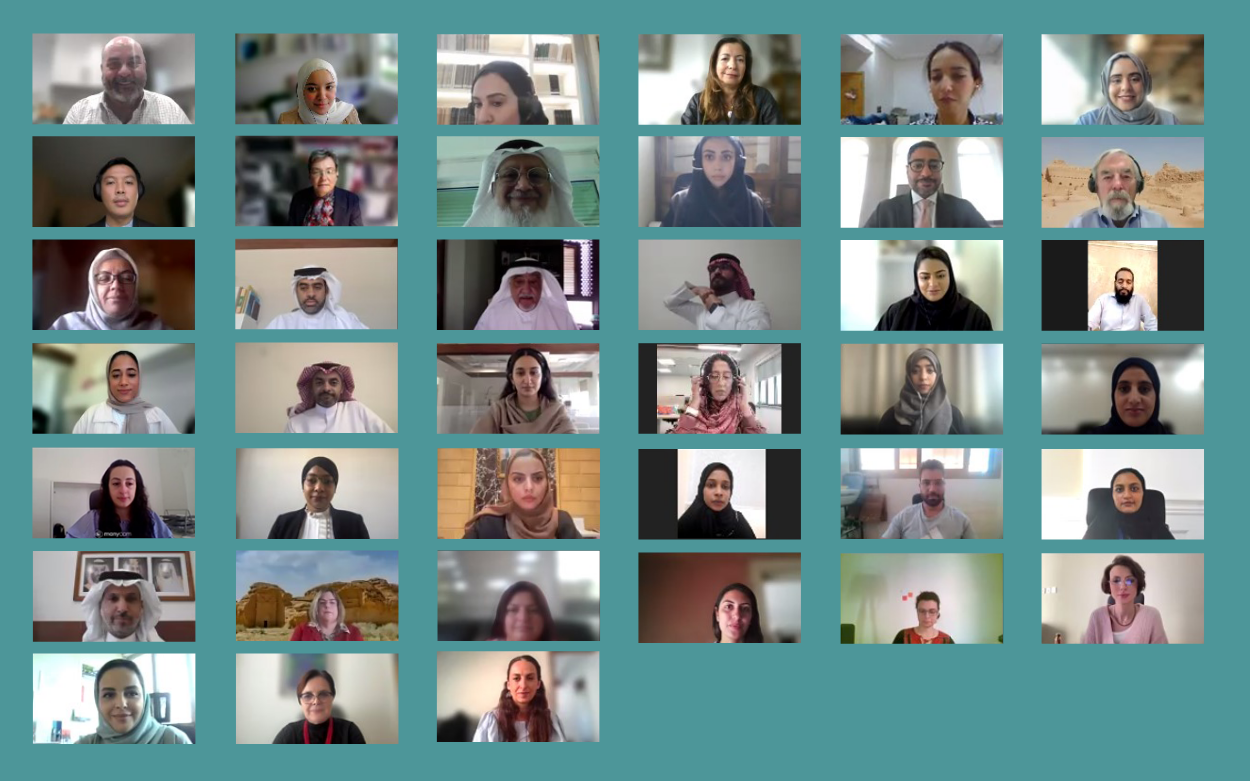Completion of the first phase of the capacity-building programme on Incorporating Sustainable Development into the Implementation of the World Heritage Convention in the Arab States Region

On June 25, The Arab Regional Centre for World Heritage (ARC-WH), the Heritage Commission in Saudi Arabia, and the ICOMOS Working Group on Sustainable Development Goals (SDGWG) concluded the online phase of the capacity-building programme on Incorporating Sustainable Development into the Implementation of the World Heritage Convention in the Arab States Region.
The first phase of the programme, held from June 10 to 11, was conducted in partnership with Saudi ICOMOS and the Royal Commission for AlUla and provided an overview of the key concepts of the World Heritage system and UNESCO’s Historic Urban Landscapes (HUL) approach. The theoretical courses were then put into practice through a case study of the archaeological site of Hegra and the broader AlUla region.
The second phase first featured an online workshop held from June 24 to 25, focusing on the integration of Sustainable Development into World Heritage conservation practices, with particular attention given to environmental aspects, economic development, and security. The online workshop will be completed in September 2024 by an in-person workshop in the AlUla region which will include seminars and a field trip to the Hegra Archaeological Site.
The online workshop involved the participation of multiple ICOMOS experts. Luisa De Marco (ICOMOS World Heritage adviser) talked about the key concepts of the World Heritage System and contributed to a working group about Hegra Archaeological Site’s attributes and values. Gabriel Caballero (ICOMOS SDGWG Focal Point) introduced the Historic Urban Landscape approach and conducted a working group dedicated to its application to Hegra and AlUla alongside Susan Fayad (ICOMOS SDGWG member, member of the global HUL programme). ICOMOS experts also discussed how heritage drives various dimensions of sustainable development. Naima Benkari addressed the concepts of Sustainable Development in the context of World Heritage. Donovan Rypkema shared his knowledge on inclusive economic development, Haifa Abdelahalim focused on environmental sustainability and Amra Hadzimuhamedovic discussed peace and post-conflict recovery.
The overall goal of the capacity-building programme is to achieve a sustainable balance between preserving World Heritage sites and promoting economic and social development in the Arab region. Additionally, the programme aims to enhance the skills of World Heritage stakeholders and site managers, foster exchanges between professionals, encourage cooperation, and integrate the HUL approach and the 2030 Agenda into the implementation of the World Heritage Convention in the region.